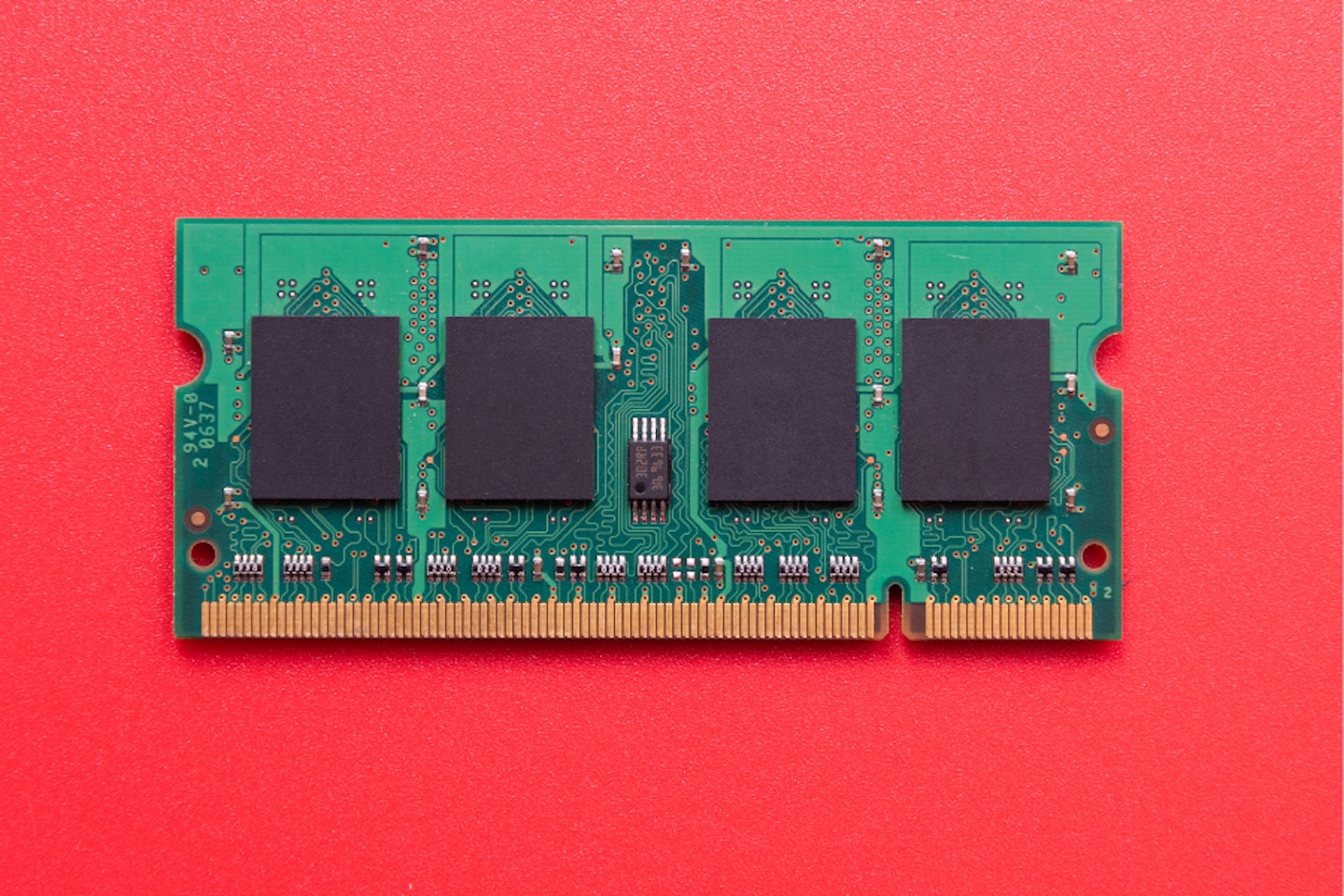When it comes to picking the best laptops, building a next-level gaming PC, or just figuring out how much you need to handle the most basic of computing tasks, RAM is a crucial part of technology decision-making.
It might not seem like it, but RAM can make or break a terrific laptop - you might have a mind-blowing graphics card, or a phenomenal CPU, but if you don't have enough RAM, your performance will be undoubtedly underwhelming.
But what exactly is RAM? How does it impact performance? And most importantly, how much do you need for the best experience possible? That's where we come in.
At What's The Best, we're here to decode the confounding jargon, answer your burning questions and help you pick the perfect amount of RAM for you, no strings attached.
What is RAM?

RAM stands for Random Access Memory, and its role is essentially to act as a temporary storage for programs, apps and games.
Modern browsing and gaming use lots of data and temporary files, most of which don't need to be permanently stored on your laptop or other devices at all.
RAM stores these temporary files and data whilst you're using a browser, such as Google Chrome. In the RAM, any data processed here can be rapidly accessed without going through a hard drive or SSD first.
The data stored in the RAM can be quickly accessed and decoded by the CPU and sent to the specific components for processing.
Plenty of RAM is a must for modern laptops and other devices because modern browsers, programs, apps and games are so demanding. If there's not enough space in your RAM, your system will begin to slow and is likely to crash so that you can lose work, important projects, and worse - game progress if you're not careful.
How much RAM do I need?
Deciding how much RAM you need is not only going to make your life easier when finding the best laptop for under £500, but it'll also help you root out the true diamonds in the rough of internet laptop shopping.
We'll break down the minimum amounts of RAM you'll find in various devices, and what exactly you'll manage to do with this much.
4GB RAM:
It's increasingly uncommon to see 4GB RAM in new machines, but it still's more likely to be found if you are shopping for a cheap laptop. 4GB of RAM is particularly low for modern browsers and even programs such as Microsoft Word.
This amount of RAM is far from a lot; you'll unquestionably struggle to run more than one program at once, but if you're tight on cash and have no alternative - you'll be able to handle some basic programs moderately well.
However, we'd recommend saving often and avoiding gaming.
8GB RAM:
Certainly, the standard in laptops under £400, 8GB of RAM is the perfect amount for office computers - you've got room to multitask with programs and browsing, and even play some low-end flash games in your spare time, but you won't likely be able to run a ton of games on it.
16GB RAM:
If you're looking for optimum performance with editing, gaming, or just general browsing, 16GB of RAM is a sweet spot for laptops. Having 16GB of RAM ensures you can run high-end games, use demanding programs such as Adobe Premiere Pro, and multitask effectively without any significant danger of crashing. The best laptops with 16GB of RAM usually aren't particularly costly but can certainly cost over £500 - so pick wisely.
32GB RAM:
While certainly rare in laptops, but possible in devices that'll cost you well over £1,000 - laptops with 32GB of RAM have truly phenomenal performance, conquering all programs you can throw at them. Paired with the perfect graphics card, you're unlikely to face any crashing because you don't have enough storage space.
Comfortable, seamless multitasking, jaw-dropping gaming boot speeds and more - 32GB of RAM is perhaps a little overkill for most people, but if you're looking for the best gaming laptop, this is what you want.
Is 32GB of RAM worth it?

For those desperate for the best performance in modern gaming, alongside multitasking and more, 32GB of RAM is an incredible amount to have, and your performance will be all the better for it.
For most, however, it certainly isn't a necessity - if you're using your laptop or other devices for work - Word, Powerpoint, Excel or emails, 8GB is absolutely enough. If you're looking to get the most out of your gaming, however, 32GB of RAM might be the way to go for you.
Ryan Houghton is a commercial content writer for What’s The Best, known best for his expertise in gaming, with a particular soft spot for PC gaming, audio tech, televisions and smartphones.
Diligently writing for What’s The Best for almost two years, there are very few tech products Ryan hasn’t had his hands on to review; televisions, headphones, folding phones and even LEGO, if it’s nerdy, he’ll be there.
His well-versed history as one of the resident techies at What’s The Best has kept him keen to uncover the very best deals, savings and offers for those in need of a cracking deal to upgrade their setup.
In his downtime, Ryan most likely has his nose buried in a fantasy book, or his eyes glued to a screen whilst playing a tough-as-nails Soulslike or leisurely RPG, indulging in most forms of escapism where possible.
Subscribe to the What’s The Best Newsletter to keep up to date with more of the latest reviews and recommendations from the rest of the What’s The Best team.
